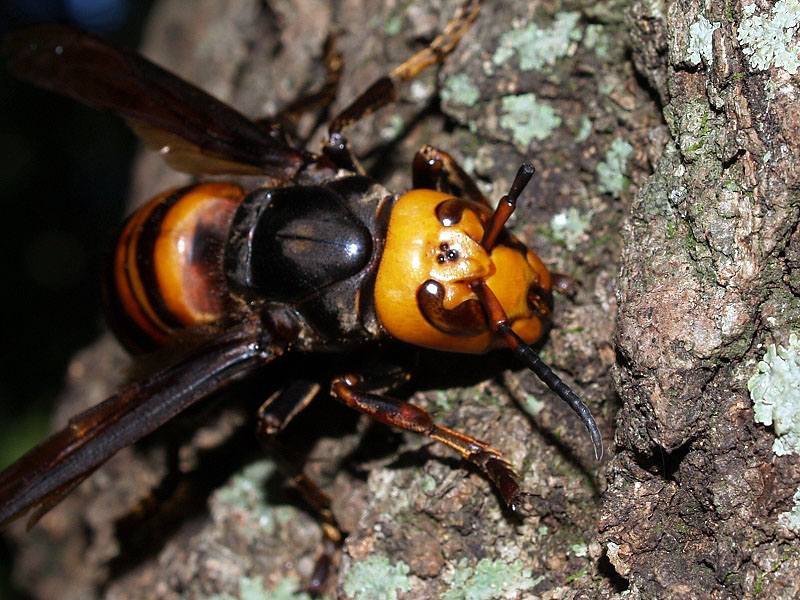Facts
The reason we picked Vespa mandarinia
is because it is not only the one of the largest insects in the
world, but because of the vicious nature of its
attacks on other
colonies and its deadly venom
(Matsuura and Sakagami 1973;Sugahara et al. 2009). The Asian giant hornet can
obliterate entire colonies of bees and members of the Vespa
family if their nests are weak enough, and the relentless nature
of their assault shows an impressive use of
chemical cues to
ensure the attack continues (Matsuura and Sakagami 1973). This coupled with the small size of
the attacking force made the insect all the more appealing to
take a closer look at. It also has an impressive flight range,
able to fly miles away to find food
(Toh and Okamura 2003). Its relative ubiquity is
also interesting as it can be found in a large portion of the
Asian continent, though the most famous subtype of these
organisms is the Japanese giant hornet, and indeed most if not
almost all of the research papers cited here
come from Japan.
It’s important for people to know about these creatures not only
because they can decimate entire colonies in hours, as many
unfortunate beekeepers in the areas they reside in have most
likely been warned of-or perhaps experienced-but also due to
their aggression. They have very strong mandibles, venom
filled stingers that can be used to terrible effect on anyone
stung by them and their long flight radius mean they can be
dangerous to encounter in large groups (Matsuura and Sakagami
1973).

Interactions
References
Home page